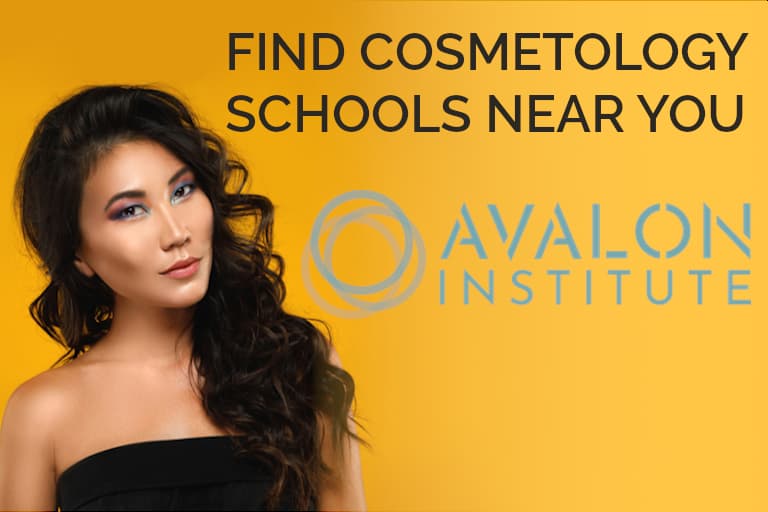Cosmetology Instructor Training
The future of cosmetology relies on skilled, passionate instructors who can pass on their skills and knowledge to a new generation of beauty professionals. Here, we'll talk about what it takes to become a cosmetology teacher, including how to become a beauty instructor, what you'll learn in a program, how much time you'll spend in school, what traits you need to succeed, and how much you could earn as a beauty instructor.
Note: We'll talk about teachers for all types of beauty school programs, not strictly those from a cosmetology background. For instance, if you're an esthetician who wants to become an esthetics teacher, much of the information below may also apply to you.
How Do I Become a Cosmetology Teacher?
Your state determines the steps you need to take to become a beauty teacher. However, a few common requirements are:
You may also need to meet age, criminal history, language ability, and other requirements to qualify for a cosmetology instructor license.
What Will I Learn in Beauty Teacher School?
Cosmetology teacher school could provide both a refresher on your existing skills and information about effective teaching and learning strategies. Just a few of the many classes you may take include:
Other classes could focus on teaching specific skills, working with students of varying needs and language backgrounds, test prep, and more.

sponsored content, school availability varies by location

sponsored content, school availability varies by location

sponsored content, school availability varies by location

sponsored content, school availability varies by location

sponsored content, school availability varies by location

sponsored content, school availability varies by location
Do I Need an Existing Beauty License to Become a Cosmetology Teacher?
You generally need an active, relevant license to practice your trade before getting a license to teach it. However, there are some variations in this expectation — which, of course, depend on your state.
For example, in some cases, a cosmetology license may allow you to become an esthetics teacher. However, some states might only allow licensed estheticians to teach esthetics, as cosmetology doesn't focus on skincare as much.
If you work in a narrower field like hairdressing or hair braiding, you need to look at your state's laws — especially if you're moving from a state where you didn't need a license to practice (let alone teach) to a state where you do need one.
In that vein, if you move to a new state and didn't need a license in your previous location, you might need to earn your license to practice cosmetology (or esthetics, manicuring, or whatever field you specialize in) before you can become a teacher — even if you were a cosmetology teacher in your previous state.
Can I Move My Cosmetology Teacher License to Another State?
Some states accept teacher training from elsewhere, while others require additional education. If you're moving from a state that doesn't require licensure to one that does, you likely need to complete some training.
If your former state required an exam equivalent to the one in your new home, you likely don't need to retake it. But if you took a different test, you might need to take another exam in your new state. In some cases, regardless of what exam you passed in your last state, you could need to take a state law test.
Do I Need Teaching Experience to Become a Beauty Instructor?
Expertise in a subject doesn't always translate to being able to instruct others on how to do the work. As a cosmetology teacher, you must know how to teach your skills and reach students with different needs, modify methods on the fly, and more. So, while you don't need years of teaching experience — some states don't require any — you should consider getting teacher training in some form.
If you can't find a teacher training program near you, see if you can mentor new beauty professionals or take relevant classes at a local community college. These courses could be anything from non-credit education classes to an associate degree, depending on your preferences.
How Long is Cosmetology Instructor School?
States set the amount of time required to become a cosmetology teacher, running from just a few hundred to about 1,000 hours. The shorter the program, the less time it takes, though it's unlikely a full-time student would take more than a few short months (if that!). If you attend part-time, you may take as much as twice as long to complete a program…but you may be less likely to be able to balance work and school. It's all about figuring out what works for you.
What Traits Do Good Cosmetology Teachers Have?
Beauty school teachers need to be skilled in their fields, of course. However, they also need other traits to help ensure their and their students' success. Some of these can be taught, and others can be gained through practice in the classroom or life experience. A few traits cosmetology teachers need are:
How Much Money Do Cosmetology Teachers Earn?
Beauty instructor pay depends on location, school, years of experience, subjects taught, and more. There isn't a centralized database for cosmetology instructor-specific pay information.
That said, Indeed and Salary.com both estimate that cosmetology teachers earn a base salary of around $45,000 per year as of September 2024. However, both resources may underestimate how much beauty professionals actually make.
The Bureau of Labor Statistics reports that teachers at technical and trade schools earn a median salary of $59,000 as of 2023. If you choose to teach at a community college, the median pay is just over $64,00 as of that year. However, these amounts include all sorts of vocational teachers, such as healthcare, culinary, and car repair instructors, which could significantly affect the estimates.
Cosmetology Teacher Schools Near Me
- Alabama
- Alaska
- Arizona
- Arkansas
- California
- Colorado
- Connecticut
- Delaware
- D.C.
- Florida
- Georgia
- Hawaii
- Idaho
- Illinois
- Indiana
- Iowa
- Kansas
- Kentucky
- Louisiana
- Maine
- Maryland
- Massachusetts
- Michigan
- Minnesota
- Mississippi
- Missouri
- Montana
- Nebraska
- Nevada
- New Hampshire
- New Jersey
- New Mexico
- New York
- North Carolina
- North Dakota
- Ohio
- Oklahoma
- Oregon
- Pennsylvania
- Rhode Island
- South Carolina
- South Dakota
- Tennessee
- Texas
- Utah
- Vermont
- Virginia
- Washington
- West Virginia
- Wisconsin
- Wyoming